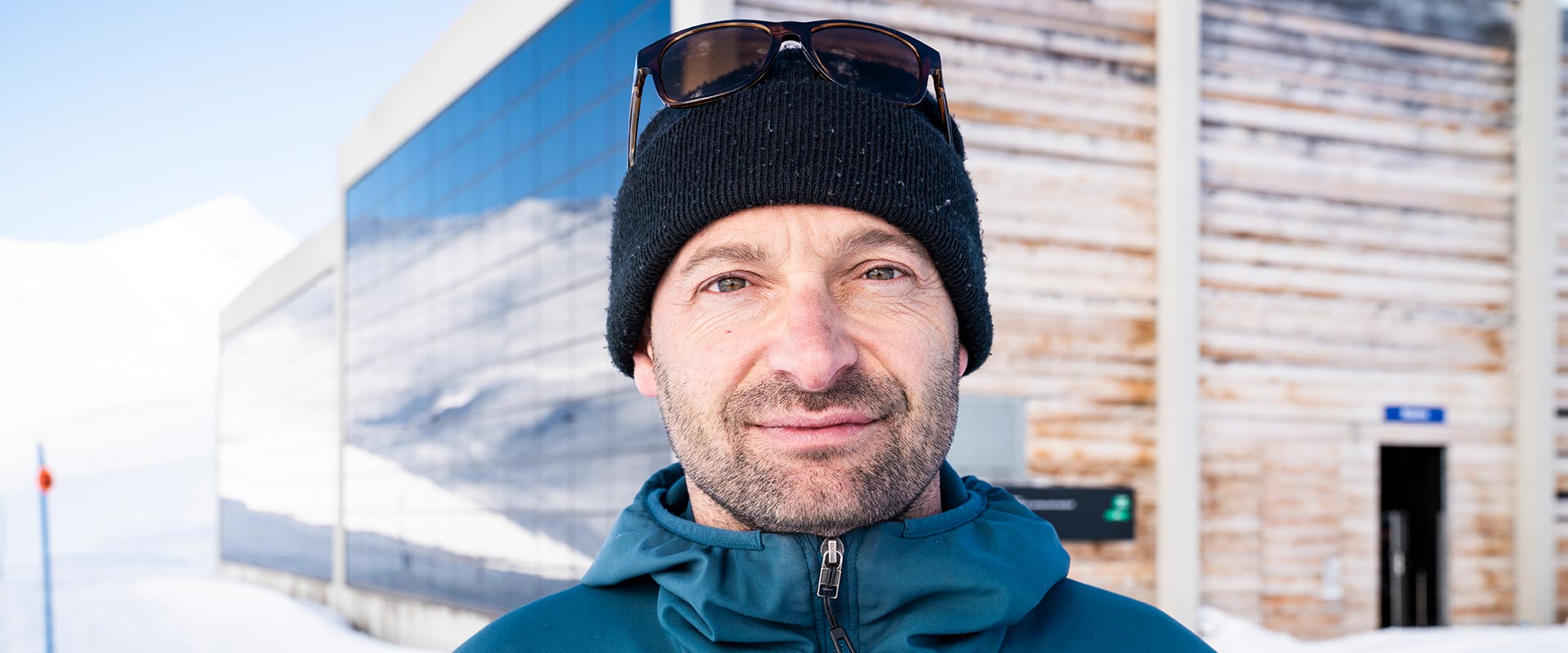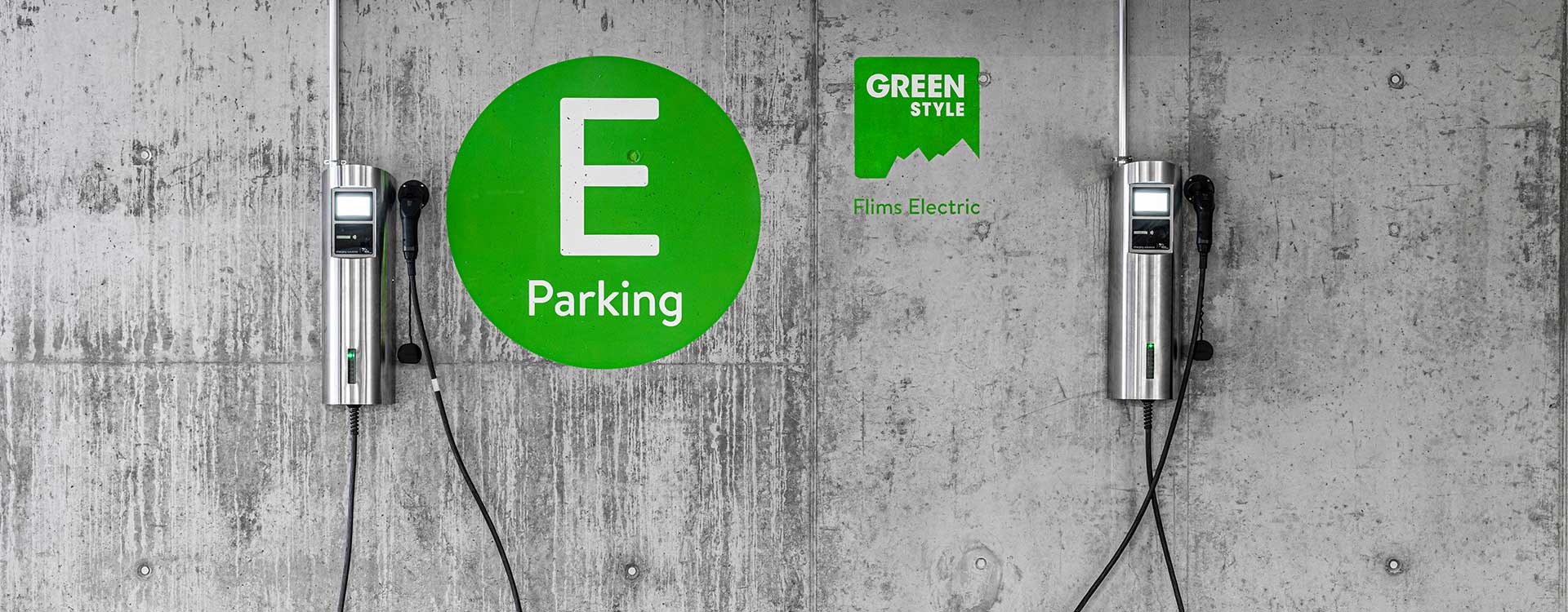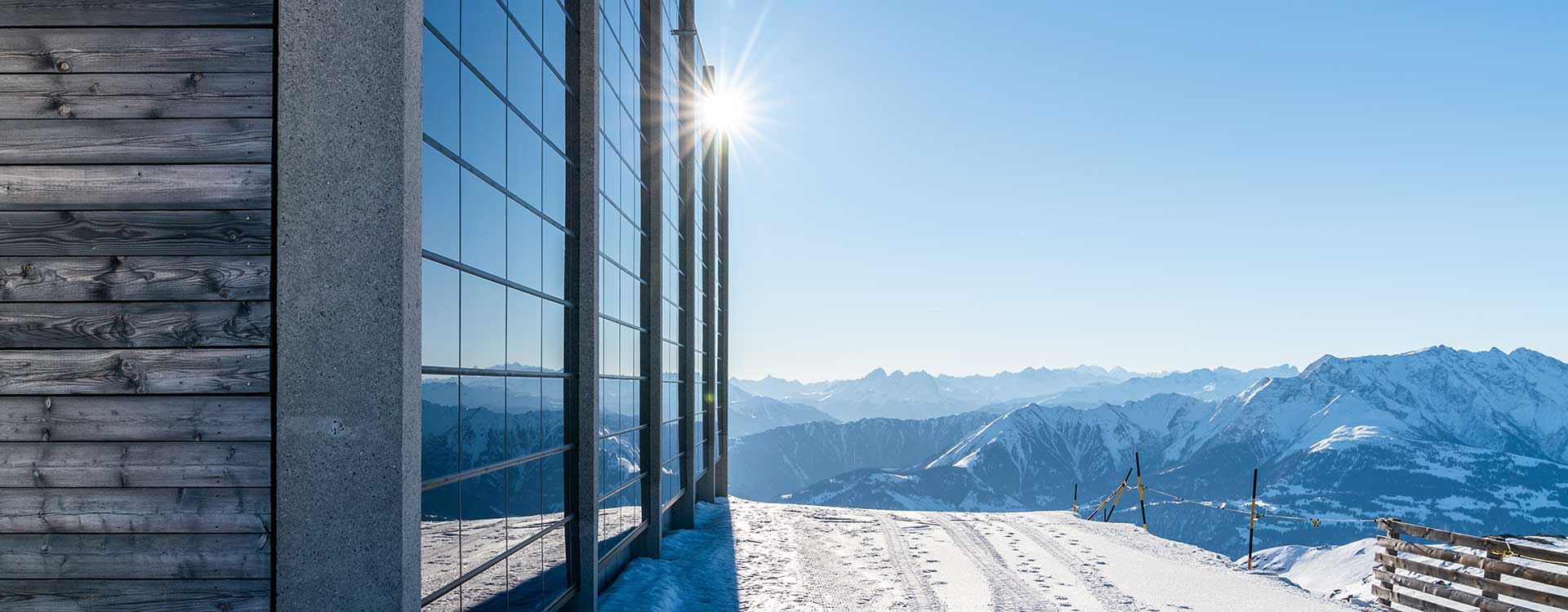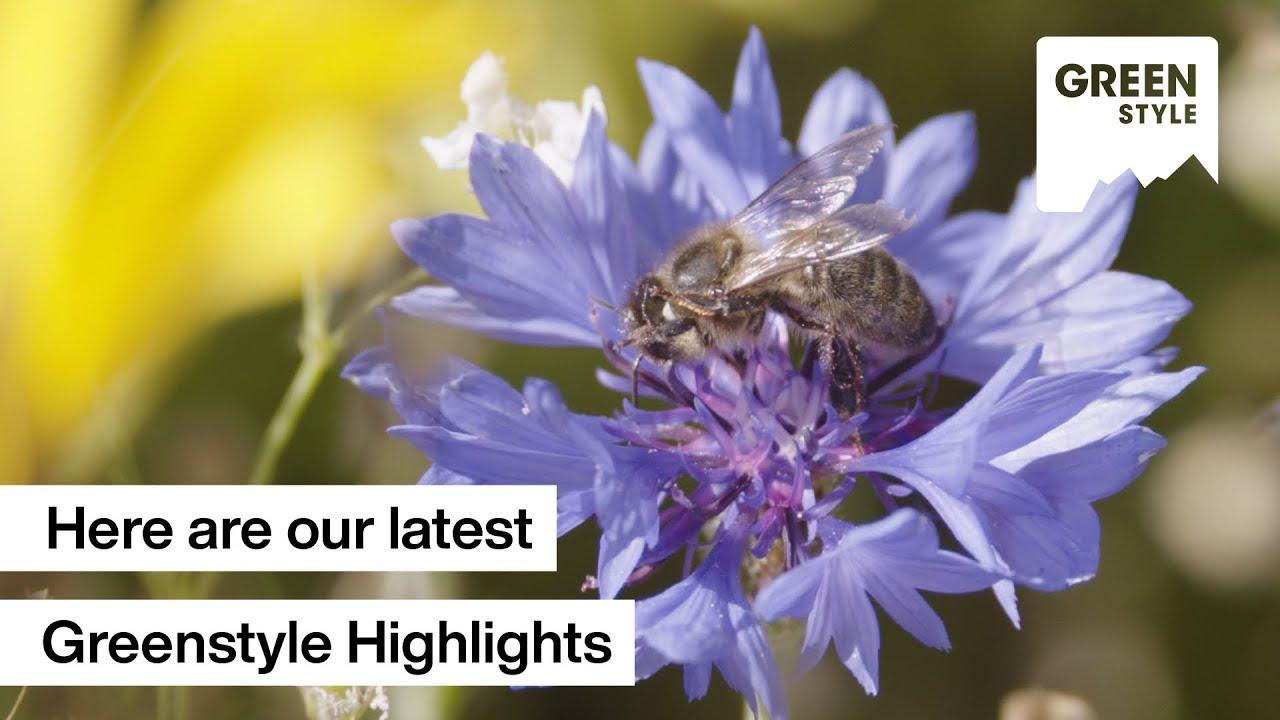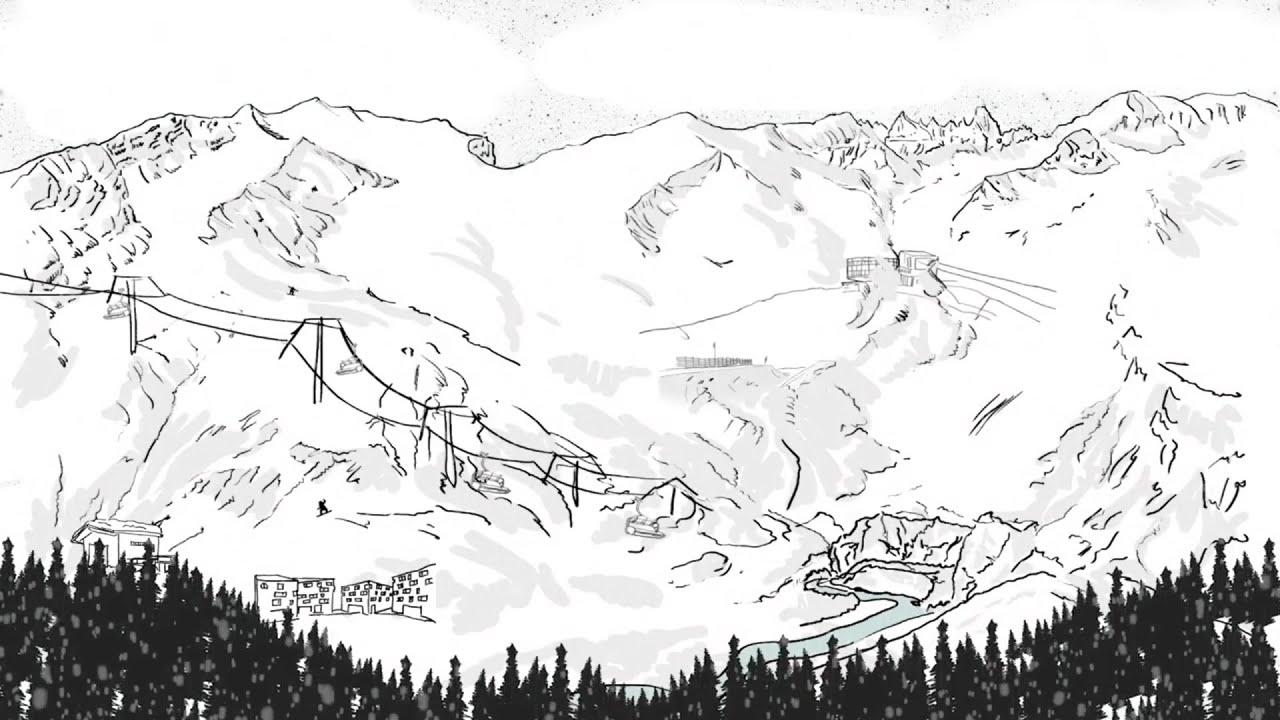Specials
We're going greenstyle
What would it be like if we could be the first alpine tourist destination to be substantially carbon neutral? That would mean producing all the energy we need ourselves. Is this just an impossible dream or is it really achievable?
When it comes to sustainability in the region, you can't avoid Reto Fry. Alongside his job as the enviromental representative at the Weisse Arena Group (WAG), he is also a member of the board of trustees at the Greenstyle Foundation, a non-profit organization that works for the maintenance and protection of the environment in the local area. One of Reto Fry's greatest dreams is to cover all the energy needs of Flims, Laax, Falera, Trin and Sagogn with 100 percent renewable energy produced in the region, based on the motto: «Imagine if we transformed the whole destination from a consumer to a producer».
What and how much do we use at the moment?
Today, the total energy used by the destination is approximately 280 GWh (gigawatt hours). Around a quarter (70GWh) is provided by renewable and climate-friendly energy. Three quarters (210 GWh) are overwhelmingly climate-damaging combustibles (fuel or heating oil) for heating and transport (cars, lorries, buses, piste preparation vehicles etc.)
What are the sources of renewable energy?
The destination's potential energy production is at least 290 GWh per year: Hydroelectric power 90 GWh, wind power 10 GWh, solar power 160 GWh and Biomass 30 GWh.

How can we achieve this goal?
In the areas of transport and buildings there is great potential to save energy. In terms of transport, the figure is 60 percent and for buildings, 50 percent or more is possible. That would decrease consumption by 110 GWh. As such, the total energy consumption could be reduced in the future to 170 GWh p.a. (gigawatt hours per annum) and would be easily covered by the production potential of 290 GWh p.a. of renewable, climate-friendly energy. Reto Fry's six-point plan provides specific steps on how it could happen (see box).
If everyone joined in, his ambitious plan might work. But it needs time, explanation, work and the will. Some locals are already trying to act ecologically in the spirit of Reto Fry and are turning his dreams of sustainability into a reality. For example, it's why you see electric cars and bikes with increasing frequency on the roads, or builders installing photovoltaic systems on their roofs and facades.

Turning words into action
Riders Hotel in Laax Murschetg has made a sustainability claim that states: maximal energy efficiency, 100 percent renewable energy and zero waste. In order to get closer to this goal, the roof of the stylish snowboarder hotel ist no a green roof and has been fitted with solar panels. It's a pilot project in which special panels can produce good amounts of energy even when there is snow cover. In addition, the green roof promises a habitat for insects and the convenience of cooling in summer and insulation from the winter cold. With a vegetarian restaurant and free clothing-repair service, the hotel team wants to display sustainable alternatives to the usual way of living. In order to strengthen the commitment to zero waste, a camera has recently been installed above the rubbish bin. It accurately measures food waste so that the next shopping trip can be done more effectively.
Even that's not enough. Christoph Schmidt, director of gastronomy at WAG, and his team insists ever more strongly on ecological thinking. As such, in all WAG's mountain and valley restaurants, 100 percent of meat is from Switzerland, and coffee and tea come from Fairtrade suppliers and are completely organic. In addition, from this winter no more plastic straws will be used and, in mountain restaurants and at events, plates and glasses will be broadly reusable. A food-waste camera has also been installed in Berghaus Nagens and in Restaurant Ella in Flims.
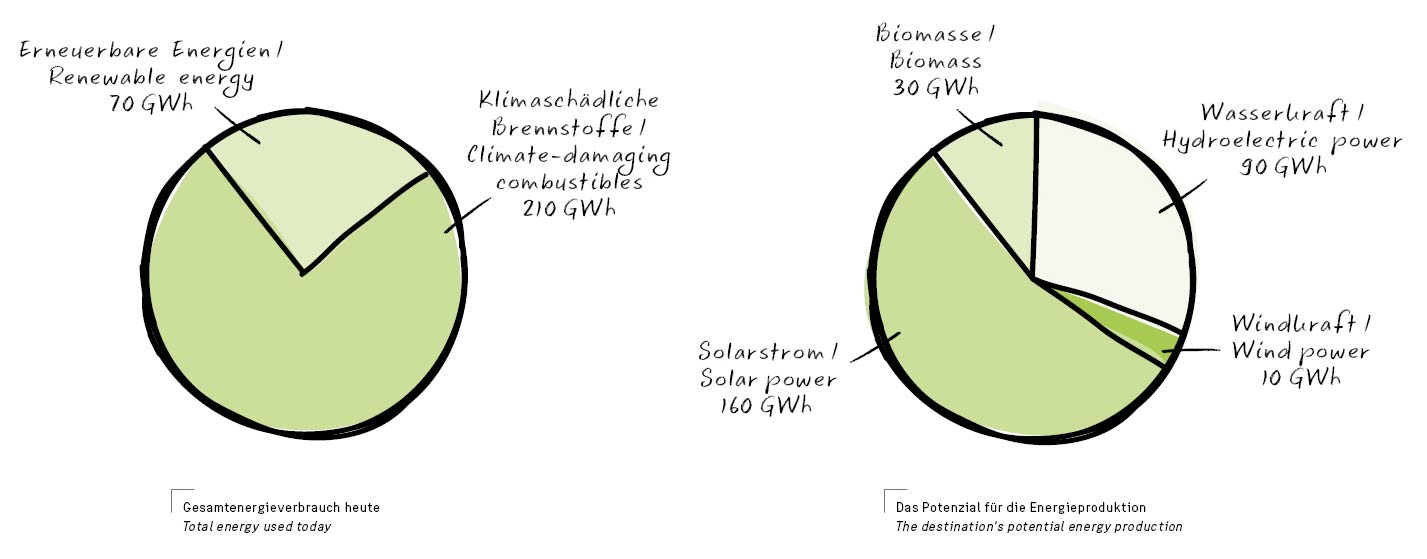
Sustainable shopping
The owners of the clothing boutique Rudolf in Flims, Melanie and Arno Dietz, are also concentrating strongly on sustainability, both in their internal processes and in their high-quality product range. Alongside denim brand K.O.I., Kings of Indigo, which is consistently fair and sustainable in its production, there are also brands such as Friendly Hunting, Langbrett, Carpasus and also Calida. All of these are companies that produce innovative and progressive ecological textiles.
Tamara Beutler follows a similar philosophy. She is the founder of the concept store Louvin in Flims. Everything that you can buy in her store is 100 percent ecological. Her main focus is on clothing, but she also offers everyday items such as ecological toothbrushes, cosmetics and accessories.
Fashion designer Deborah Fuhrer, however, goes about the topic of fashion very differently. She doesn't want to produce anything new at all, but instead maintain the old. Upcycling is her passion. In her small atelier in Flims beneath the café Livingruhm, she rescues old items of clothing.
The destination's municipalities are also making efforts to support ecological projects. Recently, Flims and Laax have begun offering recycling bags for plastic packaging. Yoghurt pots or washing liquid bottles are given a place to briefly rest before the bags are taken to the appropriate waste facility. The plastic is then processed into plastic granulate in a specialised process. The community solar project in Sagogn is also worth mentioning. With the Romansh title «Sulegl Per Sagogn» the residents of the district are offered attractive conditions to motivate them to install photovoltaic systems on their house. Since 2018, 60 solar panels have adorned the roofs of Sagogn. For a village with only 660 inhabitants, a praise-worthy achievement indeed.
But what about the personal ecological footprint of the environmental representative Reto Fry? With a smile, he has to admit that he isn't perfect. He used to fly often, but today does so only rarely. Since stopping, however, he knows his home region better and has become much fitter. Because regardless of rain or snow, Reto Fry leaves his car in the garage and gets on his bike. Transport doesn't get more sustainable than that.

